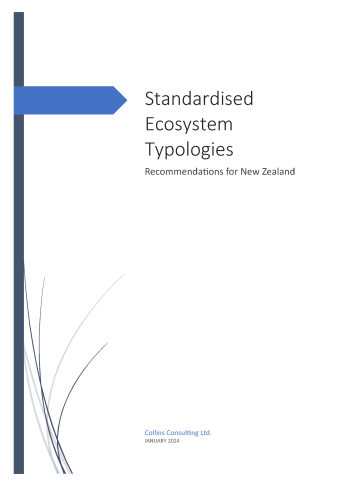Ecosystem typologies identify, define, and describe different types of ecosystems. When used consistently, ecosystem typologies provide a common language, enabling better understanding of ecosystems (eg, the rarity of an ecosystem type, comparisons with other patches of the same ecosystem type) as well as targeted actions. They are fundamental infrastructure for biodiversity protection, monitoring, and management.
New Zealand does not have a current overarching ecosystem typology that is consistent and hierarchical across domains. The purpose of this report was to gather insights from stakeholder workshops in order to inform an investment plan for developing nationally standardised ecosystem typologies that meet the core needs of multiple agencies.
This report summarises the themes of the workshops and recommends next steps in developing nationally standardised ecosystem typologies.
Ecosystem typologies identify, define, and describe different types of ecosystems. When used consistently, ecosystem typologies provide a common language, enabling better understanding of ecosystems (eg, the rarity of an ecosystem type, comparisons with other patches of the same ecosystem type) as well as targeted actions. They are fundamental infrastructure for biodiversity protection, monitoring, and management.
New Zealand does not have a current overarching ecosystem typology that is consistent and hierarchical across domains. The purpose of this report was to gather insights from stakeholder workshops in order to inform an investment plan for developing nationally standardised ecosystem typologies that meet the core needs of multiple agencies.
This report summarises the themes of the workshops and recommends next steps in developing nationally standardised ecosystem typologies.
